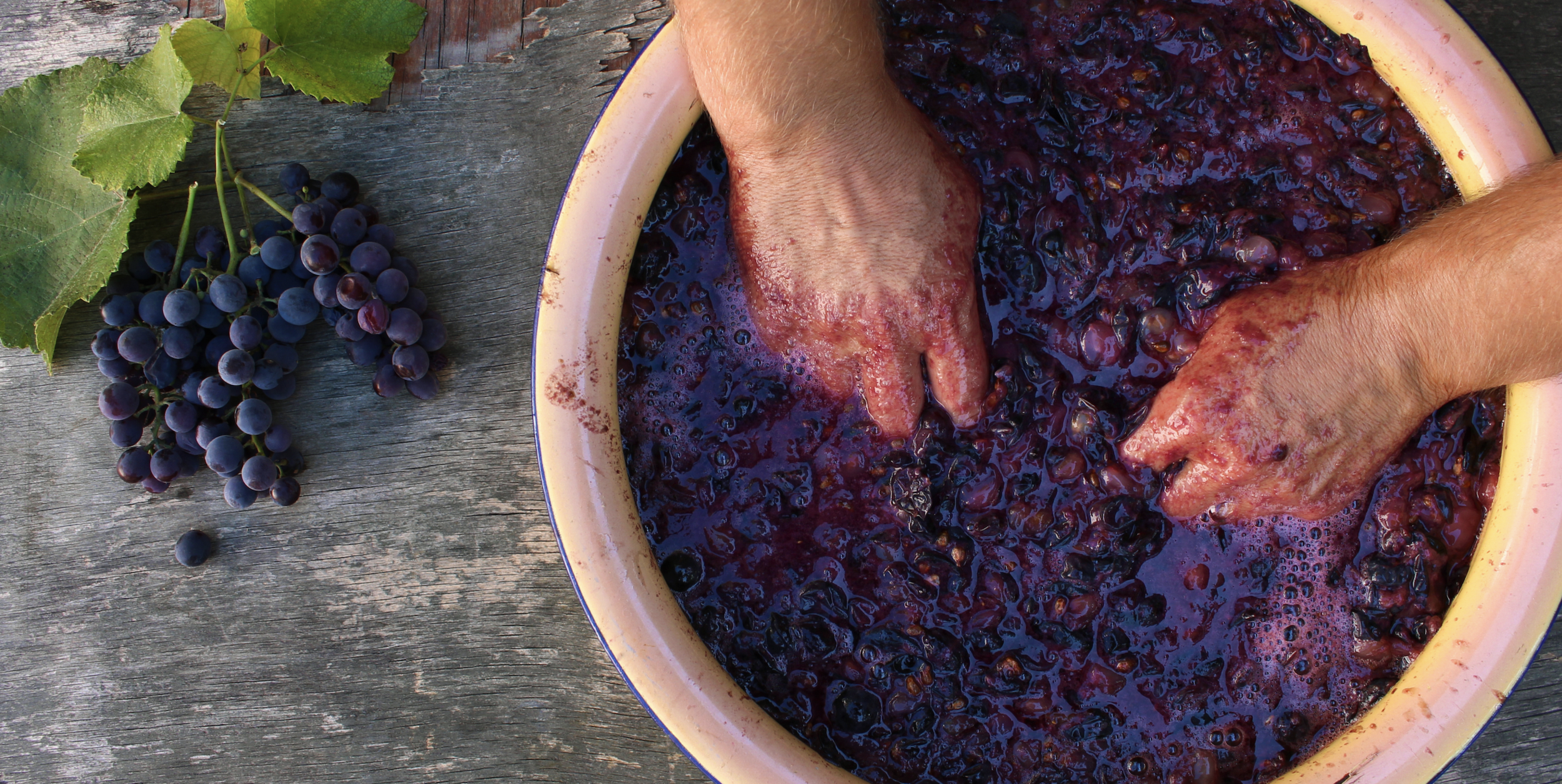Drinking wine with God
FOCAL TEXT: Matthew 21: 33-46 (and, it’s a tough one…)
“Listen to another parable. There was a landowner who planted a vineyard, put a fence around it, dug a wine press in it, and built a watchtower. Then he leased it to tenants and went to another country.When the harvest time had come, he sent his slaves to the tenants to collect his produce. But the tenants seized his slaves and beat one, killed another, and stoned another. Again he sent other slaves, more than the first; and they treated them in the same way. Finally he sent his son to them, saying, ‘They will respect my son.’ But when the tenants saw the son, they said to themselves, ‘This is the heir; come, let us kill him and get his inheritance.” So they seized him, threw him out of the vineyard, and killed him. Now when the owner of the vineyard comes, what will he do to those tenants?” They said to him, “He will put those wretches to a miserable death, and lease the vineyard to other tenants who will give him the produce at the harvest time.” Jesus said to them, “Have you never read in the scriptures: ‘The stone that the builders rejected has become the cornerstone; this was the Lord’s doing, and it is amazing in our eyes’? Therefore I tell you, the kingdom of God will be taken away from you and given to a people that produces the fruits of the kingdom.The one who falls on this stone will be broken to pieces; and it will crush anyone on whom it falls.” When the chief priests and the Pharisees heard his parables, they realized that he was speaking about them. They wanted to arrest him, but they feared the crowds, because they regarded him as a prophet.
Sermon, preached October 4, 2020
Video available on YouTube HERE.
ANTIOCH: THE EARLY CHRISTIAN COMMUNITY HEARS THIS PARABLE
For Matthew’s community in Antioch of Syria, a group of Jewish and Gentile Christians in the first century, this parable offers an explanation of the relationship between the religious traditions of Judaism based in Jerusalem and the new Christian religious community that is spreading around the region.
These early Christians would understand this parable to serve as an allegory for how the Jewish community of ancient Israel had rejected the former and latter prophets of the Hebrew scriptures- these being the two groups of slaves sent to collect the harvest from the vineyard. These early Christians would understand the son to be Jesus of Nazareth.
These early Christians would understand this allegorically to explain how God replaced his beloved Israel, his chosen people, with the “others,” the new tenants, their own community of Jesus followers who would work the vineyard and gladly give the fruits to God at harvest time.The good fruit of their vineyard would have been understood as their good works, their efforts toward living out the justice and mercy of God in their time, in Antioch.
ROMAN-OCCUPIED GALILEE OR JUDEA: THE COMMUNITY AROUND JESUS HEARS THIS PARABLE
An entirely different group of parable interpreters would be those who sat around Jesus as he told this parable- his original audience. These folks would likely be more sympathetic to the plight of oppressed tenant farmers than they would be to a wealthy landowner who abandons the vineyard for another country.
This parable supports the arc of the Jesus story in Matthew, which will soon enough lead to a humiliating public death at the hands of government officials. We can understand how outraged the religious leaders and THE CROWDS OF PEOPLE are when it is suggested that God will abandon them and replace them with others. We can understand how this parable offends the crowds of peasants, to the point that they might later gather in Jerusalem and shout, “Crucify him!”
GLENWOOD: OUR COMMUNITY HEARS THIS PARABLE TODAY
What about us?
Does this parable help us understand the ancient world and context for Jesus’ death? Yes.
Does it help us understand the early Christian communities struggling to claim their identity as God’s new chosen nation? Yes.
Does this parable reflect our theology, our understanding of how God is at work in the world. To that question, I would answer, no. Not so much.
If we interpret the parable to say that we Christians have a greater claim to God and the Kingdom and the producing of its fruits in this world than our Jewish siblings, we commit violence to people who bring us a message from God. For Matthew and the early Christian community of Antioch in Syria, this story may have had a particular allegorical usefulness. That’s really up to Matthew and those early Christians. We cannot change that or make that more appealing and less anti-Jewish. That was their interpretation.
For us today there are alternative interpretations to this parable as we wrestle out potential meanings and applications afresh. Let’s examine it as a teaching for our lives today. First, the landlord sets up the tenants for stewardship success. The landlord plants the vines, protects the vines with a fence, digs a wine press in it, and builds a watch tower to insure it is protected and cared for. The landlord invested in the success of the vineyard, and had it ready for tenants to steward on his behalf. Perhaps this teaches us that God sets us up for a fruitful life, investing in fences and wine presses and watchtowers, carefully planting vines. And we are entrusted with caring for those vines, watching carefully lest any creature come to threaten the vineyard, growing the fruit for the landlord so that we can offer it to God.
Second, the landlord is persistent in trying to get the wine. Really, really persistent. Over and over again the landlord sends people to get the wine at harvest time.
Imagine a modern version of this landlord texting and texting the tenants… The landlord sends a group text to the tenants:
Hey, everyone! How did the new wine turn out? Is it as good as last year’s? Can’t wait to try it! 🍇 💁🏾♂️
(Crickets.) He tries again and again. Still, nothing.
The landlord says to Mrs. Landlord: “You won’t believe this. The vineyard tenants are ghosting me! Why would they do that?!”
Mrs. Landlord is like: “Well, maybe the wine is so good they don’t want to share it?”
And Landlord is like: “How rude.”
And Mrs. Landlord is like: “Or it is so bad that they are embarrassed and don’t want you to try it.”
And Landlord is like: “That’s ridiculous. The tenants know me- they know I’ll understand if we have a bad year!”
Friends, God is eager to enjoy what we have produced. God values what we are laboring to create. When we hold back from sharing ourselves, our lives with God, we do violence toward God’s incredible generosity. God has set us up, made us stewards, given us what we need to flourish, invested in our success in his kingdom project. Why would we ghost God? Why would we ignore God’s interest in the fruit of our lives? Perhaps we are greedy. Perhaps we feel unworthy. Regardless of how we feel about it, God desires to celebrate all of our lives with us. When we hold back from God, we, like those vineyard tenants, do violence.
God values your work and what you contribute to the world. God not only values the things that your supervisors or teachers or clients or business partners value, God values HOW you do it. Your integrity. Your creativity. Your generosity. Your dedication to human dignity and justice. God is eager to receive the fruit of our lives, to share it with us. Not to rob us of it, to leave us depleted. Rather, God wants to experience the wine from the vineyard with us, to enjoy the work with us.
Every day produces something that will glorify God. Every day is a vineyard that produces wine for the landlord. As stewards, we participate in God’s kingdom promise of joy and fulfillment. We live every day as a gift, a gift from God, a gift to God, absorbing that our lives are gifts to be opened and shared, like a care package filled with dozens of homemade cookies sent from a loved one. A wonderful loving gift, meant to be shared.
VINEYARD HARVEST 2020
During this fall season of harvesting the fruits of the earth, we celebrate the fruits of our lives. We celebrate the God who sets us up as stewards for kingdom success. We celebrate the ways we can steward these resources to the glory of God. And we more and more absorb into our being the essence of God’s desire to celebrate the harvest with us. We offer the wine of our vineyard to God, and absorb God’s delight in tasting it, and we hear God say that it is good.
Friends, God has given us a vineyard, and we steward the land, the vines, the fences, the winepress and the watchtower for the One who called us to come and work in the vineyard. God sends messenger after messenger to connect with us, to reach us and enjoy the harvest with us.
Let us be eager to meet God at the gates of the vineyard, showing off the best wines of the harvest, arms and wagons loaded with the newest products from our lives. Let us be eager to offer back to God what God has so generously set us up to achieve.



